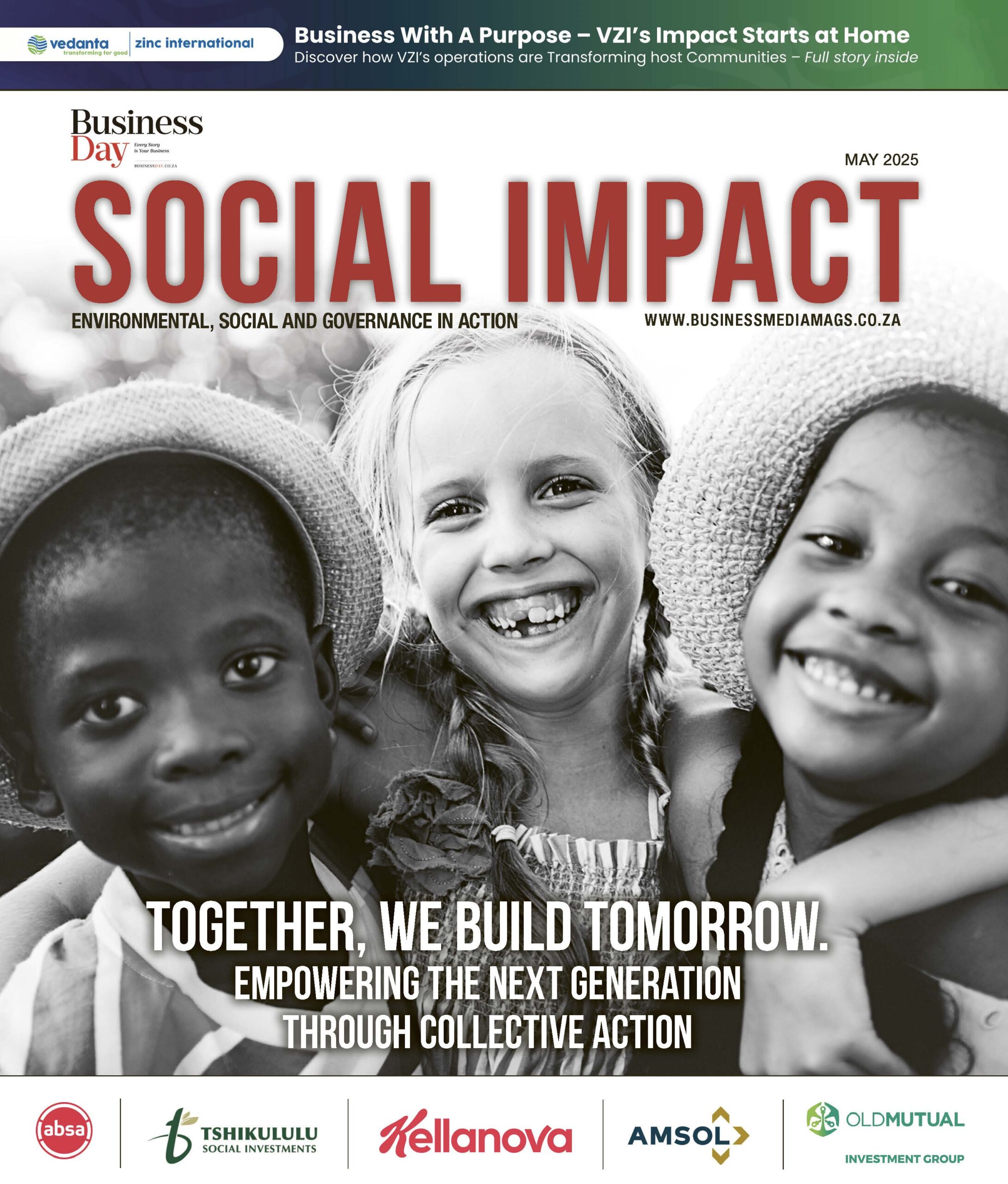Social Impact

Collective Action for a More Equitable Mzansi
South Africa remains one of the most unequal countries in the world where economic disparity manifests in numerous social challenges, including poverty, unemployment and inadequate access to basic services. The burden of addressing these issues has traditionally fallen on government institutions, but in a progressive society, the responsibility must be shared across all sectors. Corporates, civil society and individuals alike must actively participate in fostering social change and uplifting communities.
In this edition of Social Impact, we explore the tangible contributions businesses are making to create a more equitable society. While philanthropy and corporate social investment are often spoken about, we delve deeper into how these initiatives can be structured for long-term sustainability and meaningful change rather than short-term relief efforts.
One of the critical issues highlighted in this issue is hunger – an ever-present challenge that disproportionately affects rural communities and young children. Many children attend school on an empty stomach, making it difficult for them to concentrate and absorb knowledge. Hunger is not just about food insecurity; it directly impacts educational outcomes, future employment prospects and economic participation. We shine a light on various corporate initiatives that address this issue, from food banks and soup kitchens to sustainable agricultural projects aimed at creating food security for vulnerable communities.
Beyond food security, education remains a cornerstone of social development. Investment in education – whether early childhood development, STEM subjects (science, technology, engineering and mathematics) or vocational training – can break the cycle of poverty and provide young people with opportunities for a better future. Many businesses support education through bursaries, skills development programmes and technology-driven solutions to enhance learning.
In this issue, we showcase the companies making strides in ensuring South Africa’s youth are equipped with the tools they need to succeed in an increasingly competitive global economy.
The intersection between economic growth and social responsibility is becoming more apparent. More corporates, governments and individuals recognise that economic stability cannot be sustained if social inequalities persist. The rise of environmental, social and governance (ESG) frameworks is a testament to this shift as companies now integrate sustainability and ethical governance into their core strategies. We look at businesses leading the way in ESG compliance, demonstrating that profitability and social good can go hand in hand.
However, true social impact requires more than just well-intentioned interventions – it demands systemic change. Temporary fixes, such as charitable donations or one-off community projects, are no longer enough.
The challenge lies in implementing sustainable solutions that address the root causes of societal problems. This means investing in long-term development strategies that empower communities, create jobs and foster innovation.
As you read this issue, we encourage you to reflect on how businesses, big and small, can contribute to meaningful and lasting social change. Corporate social responsibility is not merely an obligation; it is an opportunity to rede ne the role of business in shaping a better future for all.
We hope that this edition of Social Impact serves as the inspiration for corporates and individuals alike to engage more deeply in conversations and actions that drive meaningful social upliftment. Let us move beyond temporary solutions and work towards sustainable, impactful change that transforms lives and communities for generations to come.
Ryland Fisher, EDITOR

